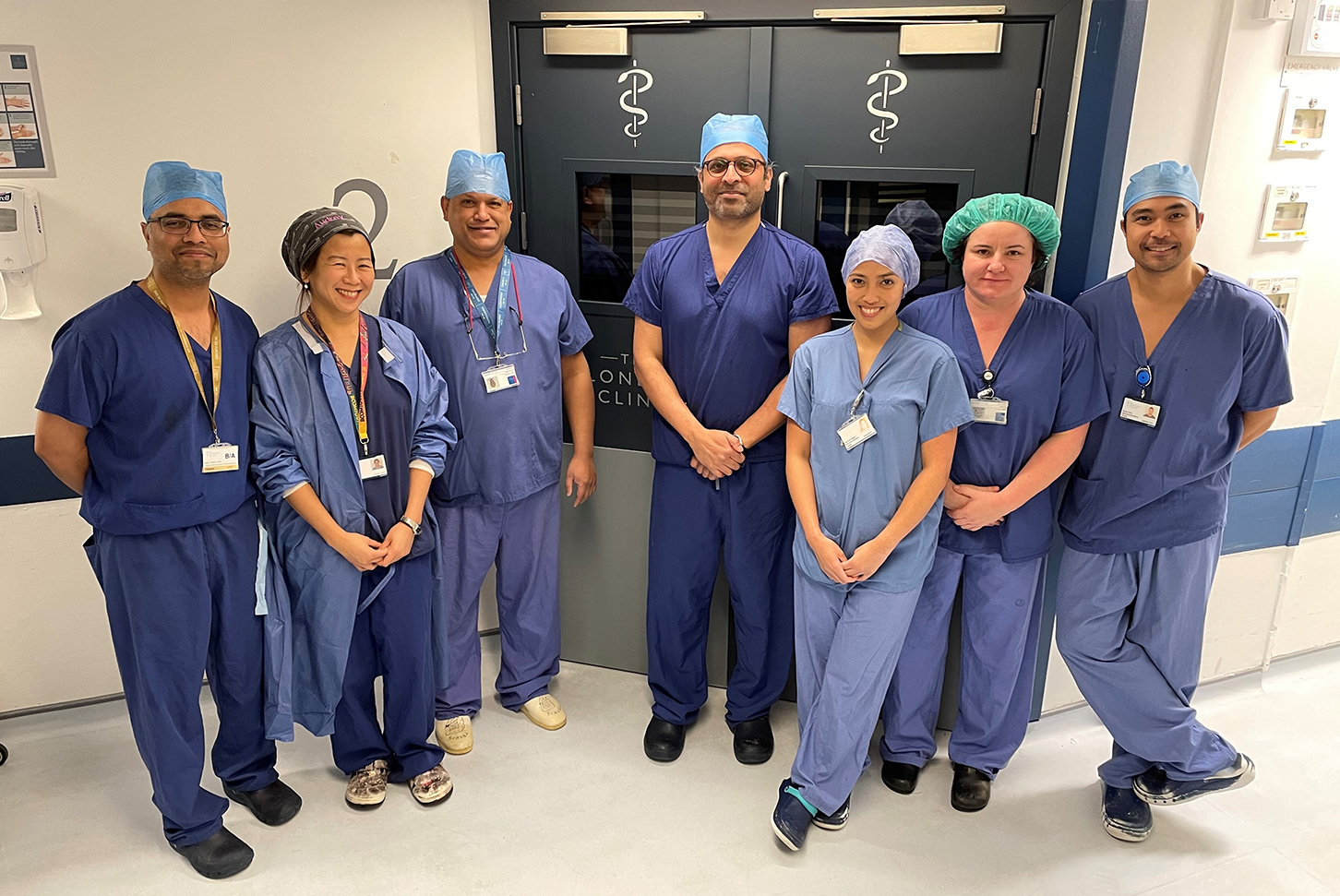The London Clinic undertakes its 100th deep brain stimulation surgery
NEWS - 27TH FEBRUARY 2024
Milestone reached at the HSMA hospital with the successful treatment of a patient with Parkinson’s disease
A patient with Parkinson’s disease has successfully undergone the 100th deep brain stimulation surgery at The London Clinic, a private charitable hospital in the Harley Street Medical Area. This milestone is a first in the UK private healthcare sector.
For people with severe tremors, Parkinson’s disease and dystonia, deep brain stimulation (DBS) can be a life-changing treatment. Mr Erlick Pereira, the lead neurosurgeon who completed the 100th surgery nearly six years after he carried out the first surgery of its kind at The London Clinic, said: “With a lot of degenerative diseases, there are no treatments available that can profoundly improve someone’s life immediately. The notion that with neurosurgery one’s function and quality of life can improve straight away is very satisfying and exciting.”

The London Clinic's 100th DBS team: Mr Adnan Shaikh, Dr Audrey Tan, Prof Dipankar Nandi, Mr Erlick Pereira, and scrub nurses Rose, Nadia and Rehman
DBS, which first appeared as a mainstream medical treatment in the 1980s, involves the implantation of electrodes to the affected parts deep in the brain. These deliver high-frequency electrical current to address the abnormal movement patterns. The electrodes are attached to a small electrical device in the patient’s chest that sends out pulses similar to those of a pacemaker.
While DBS is a complex treatment, the brain surgery portion of the procedure is minimally invasive and takes less than an hour, during which the patient is under general anaesthetic. The full procedure takes less than three hours.
Consultant neurologist Professor Francesca Morgante, who programmed the DBS system following the 100th operation, said: “We can deliver this neuromodulation treatment using the most advanced technology, which allows for fine tuning of the stimulation. We can personalise it according to patient’s unique clinical features, which is particularly advantageous for those patients with a progressive neurodegenerative disease, such as Parkinson’s.”
Assessing which patients are suitable for DBS is a team-based multidisciplinary procedure, involving neurologists, neurosurgeons, neuropsychologists, movement disorder nurse specialists and anaesthetists.
Deep brain stimulation continues to be a developing area of research. Mr Pereira added: “We now have the opportunity to study a group of people with brain implants, to record those brain signals. This generates exciting opportunities to increase our understanding of this very complex area.”
-
NEWS
The London Clinic opens new Rapid Diagnostics Centre
New Harley Street facility offers rapid tests and scans, with a focus on urology, gynaecology, breast and dermatology
-
NEWS
Re:Cognition Health gains global accreditation for research sites
HSMA cognitive healthcare provider becomes first UK commercial site network to achieve gold standard in Workforce Quality Accreditation
-
NEWS
HSMA clinic showcases robotic technology for joint replacement surgery
Fortius Clinic attends Arab Health 2024 to showcase speed, accuracy and predictability of Mako robot-assisted hip and knee surgery
-
NEWS
The London Clinic launches new primary care service
HSMA hospital offers in-person and remote GP appointments and home visits in partnership with Doctorcall and MyHealthcare Clinic